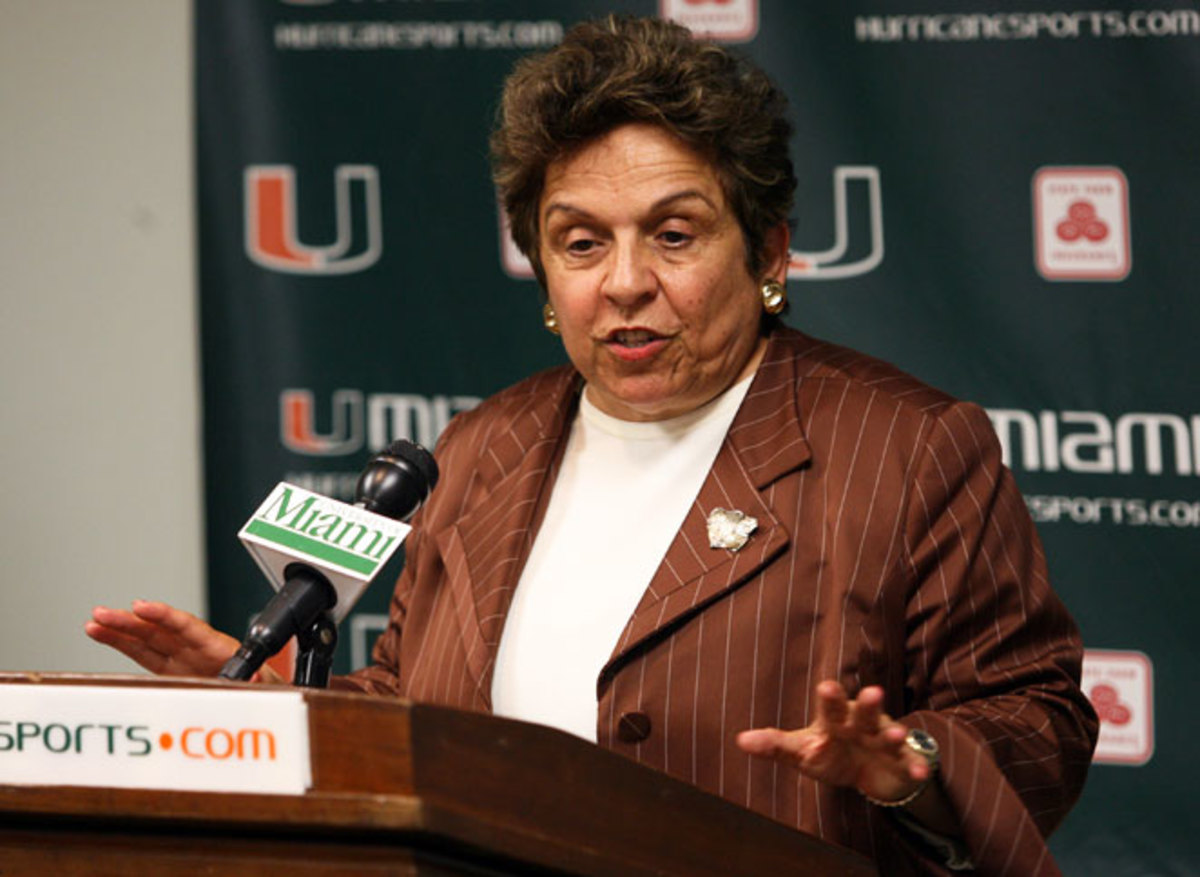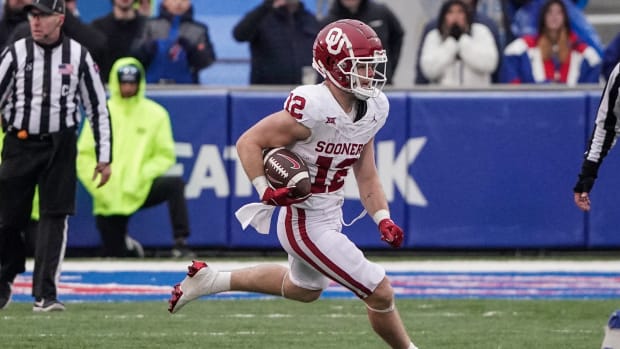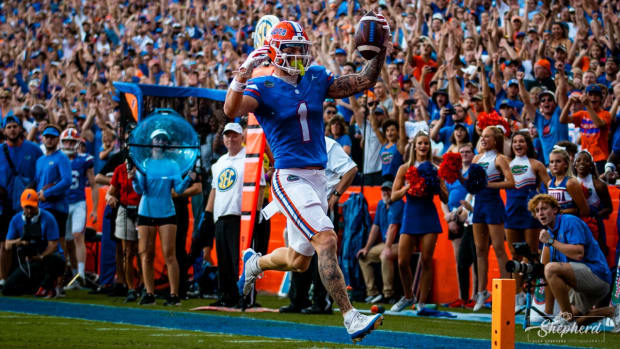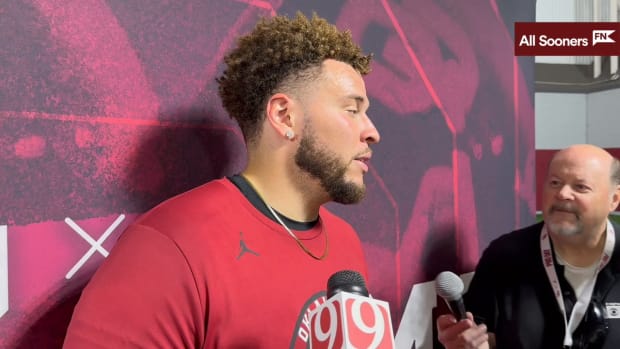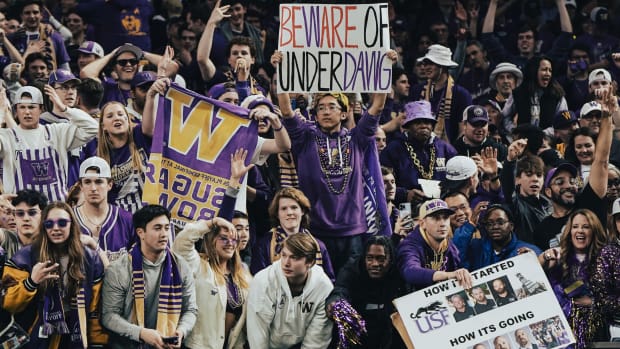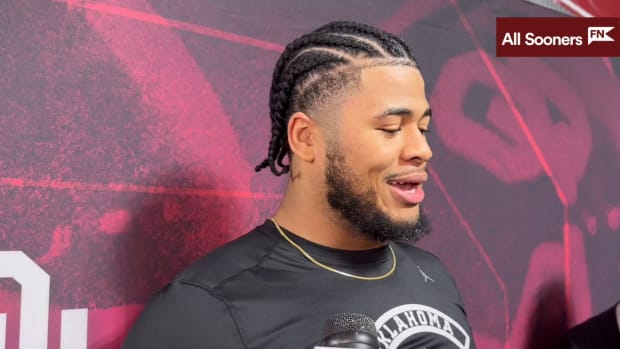Miami case could play pivotal role in the future of the NCAA
The NCAA's case against Miami always figured to be juicy. Allegations of an unchecked booster lavishing athletes with cash, yacht parties and other debaucherous benefits made for the type of salacious scandal long whispered about but rarely exposed at a major college football program. And of all programs, Miami's -- "The U" -- was already viewed as the bad boys of the sport. No sooner had Yahoo!'s August 2011 exposé hit the web than bloodthirsty fans and media were screaming for the NCAA to bring back the Death Penalty.
Eighteen months later, Miami received its Notice of Allegations this week, and the case has indeed evolved into a bombshell. What no one could have predicted, however, is that the NCAA would widely be seen as the villainous party; that Miami's expected Lack of Institutional Control charge would be held up as a symbol of hypocrisy; and that the university's president, Donna Shalala, would publicly lambaste the organization well before any sanctions have been decided, defying the long-held understanding that schools awaiting NCAA justice should be subservient and remorseful.
Of course, it's easy for Shalala to play the victim card right now. The NCAA has publicly admitted to investigative misconduct in the case and fired its head of enforcement. It's also convenient that Shalala would issue a statement that includes the line, "Many of the allegations included in the Notice of Allegations remain unsubstantiated," when Miami -- as is its right as a private institution -- is not sharing that document publicly. Bits and pieces have filtered out, but as of now it's Shalala's word that, "Most of the sensationalized media accounts of [Nevin] Shapiro's claims are found nowhere in the Notice of Allegations."
Still, it's clear that Shalala, the former U.S. Secretary of Health and Human Services in the Bill Clinton administration, is taking full advantage of the NCAA's admitted missteps and accompanying p.r. backlash to fight back in a manner unlike any accused school in recent memory. She has asked that the Committee on Infractions not levy any additional sanctions beyond the two-year bowl ban, scholarship reductions and player suspensions the school has already self-imposed. "We have been wronged in this investigation, and we believe that this process must come to a swift resolution," she said on Monday.
Given her stance, if the Committee on Infractions does eventually hammer Miami ... will it lead to Miami v. NCAA?
"Reading between the lines, they've made it clear they're going to fight this after the hearing," said B. David Ridpath, a sports administration professor at Ohio University and outspoken critic of the NCAA's enforcement process. "It wouldn't surprise me if Shalala is positioning herself for a post-sanctions lawsuit, or, she may get them hauled up to Capitol Hill. I don't think it would take her more than a couple phone calls to make that happen."
It's not uncommon for individuals sanctioned by the NCAA -- mostly coaches -- to fight back via litigation. The NCAA is currently defending itself in multiple such cases, including ex-USC running backs coach Todd McNair's defamation suit. In 2005, ousted Washington coach Rick Neuheisel won a $4.5 million settlement when it was revealed during his wrongful termination suit that investigators failed to follow their own procedural rules when questioning him about a gambling allegation. Or, a related party might choose to sue, as the state of Pennsylvania is currently attempting in the wake of last summer's Penn State sanctions. When SMU received the Death Penalty in 1987, an alumnus, David R. McCormack, tried unsuccessfully to file an antitrust suit on behalf of the Mustangs community.
But for a school itself to fight the NCAA over perceived unfairness by the organization's enforcement arm? That's virtually unheard of. One likely has to go back to 1975, when Howard University alleged the NCAA violated its due process rights in levying sanctions against its soccer team. Two courts deemed one of the NCAA's bylaws regarding foreign students at the time unconstitutional, but they upheld the sanctions and enforcement process behind them. A 1988 Supreme Court ruling in NCAA v. Tarkanian affirmed that the NCAA is not a "state actor" and thus did not violate the UNLV coach's right to due process in suspending him.
Meanwhile, the NCAA has been called before Congress on three occasions, most recently 2004, to defend its enforcement process. Each instance prompted various procedural changes on the NCAA's part, but each mostly affirmed the organization's "immunity to due-process standards," as stated on the NCAA's official site.
Miami, therefore, would seemingly face long odds if it chose to fight the NCAA in court or in Congress. After all, the school is a voluntary member of a private organization, and as such helped establish and maintain the regulatory system by which it's being prosecuted. Shalala herself has played a role in implementing NCAA various NCAA policies. Could she really sue an entity in which she and her school are active participants?
"I think Miami would have a case," said SI.com legal expert Michael McCann, a Vermont sports law professor. "For one, there's the potential for a defamation claim by the named individuals in the NCAA report and by the University of Miami itself, and the upside there is that, like in Vilma v. Goodell, it could force the defendant to offer more evidence or certainty than it is willing to do voluntarily. It would also put the NCAA on the defensive in a situation in which they have clearly been compromised by their own corruption and poor judgment."
Other potential means of recourse include a breach of contract suit, if Miami feels the NCAA failed to live up to expectations of conduct that come with its membership; or, less likely, an abuse of process claim, if the school can prove the enforcement staff's botched protocol caused it undue damage. The discovery phase in such a suit -- or, for that matter, sworn testimony in a Congressional hearing -- could expose even more NCAA dirty laundry than Monday's self-commissioned report.
STAPLES: Miami report highlights need for NCAA transparency
"I'm not sure the NCAA would be up for a fight where it has to prove itself, not to satisfaction of the Committee on Infractions, but to the satisfaction of a judge and jury," said John Infante, a former compliance officer and author of the Bylaw Blog. "If you're the NCAA, you don't want them deposing [investigators] Richard Johanningmeier or Ameen Najjar. Even if there was no rule broken, it still doesn't sound good."
It may be that the case never goes that far. It may be that Shalala is just posturing in advance of the school's Committee hearing this summer. And it may be that the Committee takes pity on Miami given its unique circumstances and renders the issues moot.
"My guess is the penalty the institution imposed and the Committee penalty won't be significantly different," said Chuck Smrt, president of The Compliance Group, which represents schools in infractions cases. "I think they'll give them the benefit of the doubt. There will be some mitigating factors, and one of the mitigating circumstances is this staff misconduct."
But it's virtually impossible to predict a Committee on Infractions decision, especially without having seen the Notice of Allegations. Committee members change from case to case, and sanctions are often wildly inconsistent from one case to the next.
"The other possibility is the [Committee] is like, we knew something rotten was going on here for years before, and we're not going to let these bumbling idiots in Indianapolis screw this up," said Infante. "This is our chance to get our man and show how valuable the Committee on Infractions is. We're serious about taking a continued aggressive stance toward cheaters."
Under normal circumstances, that may well be the correct path the Committee should take, given Miami's alleged institutional culpability in Shapiro's exploits. If they do, however, they risk placing the NCAA in an extended fight with the politically connected Shalala. And they'll do so in an overwhelmingly unsympathetic climate.
Even before this enforcement fiasco, the NCAA had suffered noticeable erosion in confidence, not just publicly but within its membership. Certain university presidents and athletic directors feel alienated from the staff in Indianapolis, where president Mark Emmert and a small cadre of senior advisors seem bent on imposing their will and squashing dissenters. Emmert drew praise for showing transparency with the Miami report but bewilderment over his cavalier insistence on proceeding with the rest of the case, as though tossing out a couple of crooked depositions solved everything.
"It's an open question among some people about whether he can still do the job," a president "active in NCAA leadership" told the Chronicle of Higher Education.
Meanwhile, the hovering threat of an eventual NCAA breakoff by the power-conference football schools gains steam with each new crisis. A high-profile trial over the enforcement process -- on top of the potentially seismic Ed O'Bannon antitrust case set for next year -- would certainly not help matters.
"For all we know, there's an AD at a school right now itching for the catalyst to go to his president and say, 'We need to leave the NCAA,'" said Infante. "There's probably at least one AD sitting out there waiting for a chance to say, 'See, I told you, we've got to get out of here,' and this Miami thing could be that."
Miami has 90 days to respond to the Notice of Allegations, and its Committee hearing will likely come this summer, followed by a decision in the fall. Should the school appeal, the case could drag on for another half-year. The inordinate length of these investigations is another reason why most schools don't belabor the point by going to court.
"Once you go to that hearing and it's done, the pervading thought is let's get this behind us," said Ridpath. "I'm sure [Miami coach] Al Golden, the last thing he'd want is a lawsuit or an appeal."
Back when all this broke 18 months ago, the biggest question was just how severely Shapiro might affect the future of Golden's program. Now, Shapiro, his lawyer and the investigators that hired her -- not to mention the powerful university president they incensed -- may well play a more consequential role in determining the future of the NCAA.
ANDERSON: Miami case not likely to find resolution anytime soon
STAPLES: Minnesota's Bauman another victim of NCAA hypocrisy
